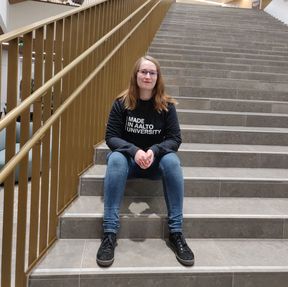Self-managing workers also have their limits – support needed especially for work organisation and workload management

Managing one's own work, also referred to as self-management or self-leadership, is the everyday life of an increasing number of experts. However, if left alone, people who manage themselves are at risk of exhaustion.
‘People are much harder on themselves than on their colleagues, for example. In intensive work situations, self-management should also include scaling one’s own workload according to one’s capacity and energy,’ says Aliisa Pietilä. In her master's thesis, she studied working methods and work recovery among experts in three Finnish software consulting companies: Nitor, Solita and Vincit.
The companies all have in common a self-managing approach to work. The 15 experts interviewed by Pietilä found the self-managing working method rewarding. They carried a lot of personal responsibility for their work, but enjoyed the independence and trust they had been given. However, most of the interviewees also wanted stronger management and clearer feedback. Support was needed especially in work organisation and workload management.
‘Everyone must have someone who asks how things are going’
The interviews also showed that the concept of work recovery was rather foreign to the experts and their everyday working methods did not support it. Many were bad at taking breaks from work, set excessively hard goals for themselves, compared themselves to others, and were not able to draw boundaries between work and the rest of life. Those who felt exhausted had in common a feeling of powerlessness in the face of overall stress levels that had risen too high. This, on the other hand, was often due to the fact that the pressures encountered at work were combined with a challenging phase in their private life.
‘The results confirmed the importance of being seen and noticed in everyday life from the viewpoint of work well-being. Everyone must have someone who asks how things are going,’ emphasises Outi Sivonen, who is responsible for developing Solita's work culture and employee experience.
‘At Solita, well-being at work is supported by either the supervisor, project leader or colleagues, depending on what kind of sparring an expert feels they need at any given time. The possibility of flexible arrangements for one's own daily life clearly increases the sense of control and autonomy, so it is worth paying attention to it in the future. Support is also provided by self-management coaching, internal coach support, family mentoring and occupational health services,’ Sivonen adds.
A self-managing working method requires new solutions from the company to ensure the well-being of employees, emphasises Frank Martela, who supervised Pietilä's work.
‘At its best, self-leadership is liberating and motivating, but it requires new types of competence from employees, such as skills in looking after one’s own well-being. A workplace aiming for self-management must ensure that everyone has sufficient competence to ensure their own well-being and that the organisation has structures independent of the supervisor that help an employee who is exhausting or struggling with a low sense of well-being.’
The Finnish Association for Human Resources Management HENRY selected Pietilä's work as the best among the graduates and master's theses on HR in 2019.
You can read Aliisa Pietilä's Master's thesis here.
Read more news

Stop applying for jobs and build your own startup instead at Ignite
Applications for the Ignite summer accelerator program 2026 are open. Apply by March 8.
Environmental Structure of the Year 2025 Award goes to Kalasatama-Pasila tramway
The award is given in recognition of meritorious design and implementation of the built environment. Experts from Aalto University developed sustainability solutions for the project.
Five things everyone should know about creativity
Creativity is not the preserve of artists or a rare innate talent but a human capacity we all share – and one that can be measured, developed, and led for. The two-year Creative Leap project explored how creativity shows up in everyday life and work and how it connects to companies’ financial results. Here are five key takeaways.






